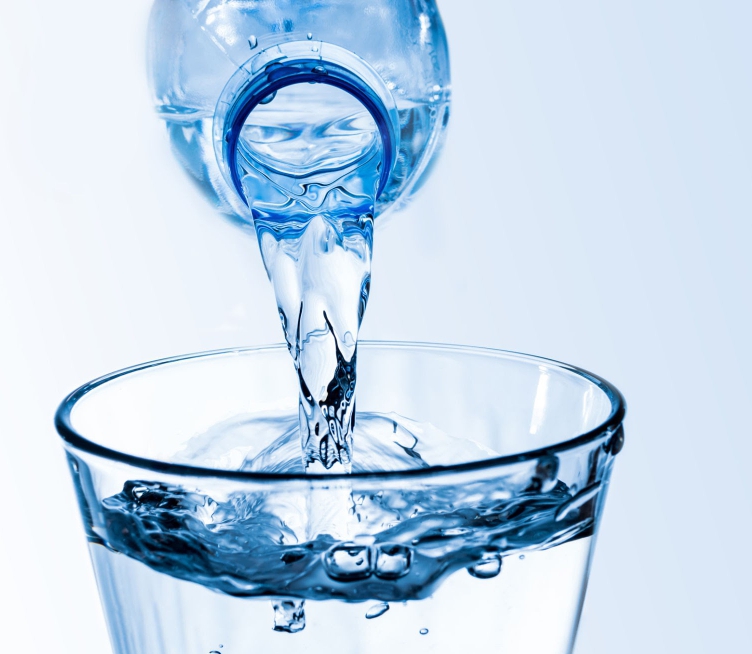
Water, a simple compound made up of two hydrogen atoms and one oxygen atom (H₂O), is the most vital substance on Earth. Covering about 71% of the planet’s surface and making up a significant portion of every living organism, water is the foundation of life. This article delves into the issues surrounding water, laying emphasis on acidic and Alkaline waters, also explaining its critical role in sustaining ecosystems and human society.
The Water Cycle
The water cycle, also known as the hydrological cycle, is the continuous movement of water within the Earth’s atmosphere, surface, and underground. This process consists of several stages:
1. Evaporation: The sun’s heat causes water from oceans, rivers, lakes, and other water bodies to evaporate, turning it into water vapor.
2. Condensation: The water vapor rises into the atmosphere, where it cools and condenses into tiny droplets, forming clouds.
3. Precipitation: When the clouds become saturated, water falls back to the Earth as rain, snow, sleet, or hail.
4. Collection: The precipitated water gathers in rivers, lakes, oceans, and underground reservoirs, replenishing the natural water sources.
5. Infiltration and Runoff: Some of the water soaks into the ground, replenishing aquifers, while the rest flows over the surface, eventually returning to larger water bodies.
This cycle ensures a continuous supply of fresh water, supporting plant and animal life, agriculture, and human consumption.
Sources of Water
Water is abundant on Earth, but only a small fraction of it is readily available for human use:
A. Oceans: About 97% of the Earth’s water is found in oceans. This water is saline and unsuitable for drinking or irrigation without desalination.
B. Freshwater: Only about 3% of the Earth’s water is freshwater, and most of it is locked in glaciers, ice caps, and underground aquifers. Rivers, lakes, and streams make up a tiny fraction of accessible freshwater.
C. Groundwater: Stored in underground aquifers, groundwater is an essential source of freshwater for drinking, agriculture, and industry. Wells and springs tap into this resource to provide water for various uses.
D. Surface Water: Rivers, lakes, and reservoirs provide water for direct use in agriculture, industry, and households. They are vital for sustaining ecosystems, supporting wildlife, and maintaining biodiversity.
The Importance of Water
Water is indispensable for all forms of life. Its importance can be seen in various aspects of nature, health, and human activities:
1. Biological Functions: In living organisms, water plays a crucial role in metabolic processes, nutrient transportation, waste removal, and temperature regulation. In plants, water facilitates photosynthesis, the process by which they produce food and release oxygen.
2. Agriculture: Water is a key element in agriculture, used for irrigation to grow crops and sustain livestock. Efficient water management in agriculture is critical for food security and the global economy.
3. Human Health: Safe drinking water is essential for human health. It is necessary for hydration, digestion, and maintaining bodily functions. Inadequate access to clean water can lead to waterborne diseases, posing severe public health risks.
4. Economic Activities: Industries rely on water for various processes, including manufacturing, energy production, and mining. Hydropower, a clean and renewable energy source, is generated by harnessing the energy of flowing water.
5. Environmental Balance: Water bodies such as rivers, lakes, and oceans are home to diverse ecosystems. They support aquatic life, regulate weather patterns, and maintain ecological balance.
Acidic water.
Water is a vital resource that directly impacts health, environment, and daily life. While most water sources are considered neutral (pH level of 7), water can become either acidic (pH less than 7) or alkaline (pH greater than 7). Acidic water, in particular, has garnered attention due to its various implications for health, plumbing, agriculture, and aquatic life. This article dives into what acidic water is, how it forms, its effects, and ways to address its potential problems.
What is Acidic water?
Water’s pH level determines its acidity or alkalinity. The pH scale ranges from 0 to 14, with 7 being neutral. Acidic water has a pH level less than 7, with lower values indicating higher acidity. Naturally occurring water typically has a pH level ranging between 6.5 and 8.5. When water falls below this range, it is considered acidic.
Causes of Acidic water
Several natural and human-made factors contribute to the formation of acidic water:
a. Rainwater: Pure rainwater is naturally acidic, with a pH around 5.6, due to the dissolution of carbon dioxide in the atmosphere, which forms weak carbonic acid. Acid rain, however, is more acidic (pH as low as 4) and is caused by pollutants like sulfur dioxide (SO₂) and nitrogen oxides (NOx) in the atmosphere from industrial emissions, fossil fuel combustion, and vehicle exhaust.
b. Geological Factors: Some regions have acidic soil or rock formations, such as those containing granite or quartzite, which naturally make the water running through them more acidic. In areas with high levels of dissolved minerals, water can also leach metals like iron, copper, and manganese from the soil, increasing its acidity.
c. Runoff and Pollution: Agricultural runoff containing fertilizers, pesticides, and animal waste can cause water bodies to become acidic. Industrial waste and untreated sewage discharged into rivers and lakes also contribute to acidic conditions. Mining activities, especially coal mining, release sulfur compounds that oxidize to form sulfuric acid, significantly lowering the water’s pH.
d. Water Treatment Processes: Certain water treatment methods, such as the use of chlorine, can result in water becoming more acidic. Additionally, improper balancing of chemicals during water treatment can alter the pH.
Effects of Acidic Water
Acidic water poses several potential issues for human health, infrastructure, agriculture, and the environment:
1. Health Risks: While mildly acidic water is generally safe to drink, water with a pH below 4 can pose health risks. It can cause digestive issues and irritate the skin and mucous membranes. Moreover, acidic water can leach metals like lead, copper, and iron from pipes and plumbing fixtures, introducing potentially harmful contaminants into drinking water.
2. Plumbing and Infrastructure Damage: Acidic water is corrosive, which means it can gradually dissolve metals, leading to the corrosion of pipes, fixtures, and appliances. This corrosion not only leads to leaks and costly repairs but can also introduce toxic metals into the water supply, making it unsafe for consumption.
3. Agricultural Impact: In agriculture, irrigation with acidic water can harm soil health. Acidic water can leach essential nutrients such as calcium and magnesium from the soil, affecting crop growth and productivity. It can also increase the solubility of toxic metals like aluminum, which can be detrimental to plant roots.
4. Environmental Impact: Acidic water can have harmful effects on aquatic ecosystems. It can cause the release of toxic metals from sediments into the water, which can be deadly to fish and other aquatic organisms. Acidic conditions can also disrupt the natural balance of water bodies, affecting biodiversity and food chains.
Alkaline water.
Water is vital for human life, but not all water is created equal. Among the various types of water available, “alkaline water” has gained popularity as a potential health booster. Advocates claim that it offers numerous benefits, while skeptics question its efficacy. This article delves into what alkaline water is, its purported health benefits, potential risks, and the science behind it.
What is Alkaline Water?
Alkaline water is water with a higher pH level than regular drinking water. The pH scale ranges from 0 to 14, with 7 considered neutral. Substances with a pH level below 7 are acidic, while those above 7 are alkaline (or basic). Normal drinking water typically has a neutral pH of 7, whereas alkaline water usually has a pH of 8 or 9.
Alkaline water can occur naturally when water passes over rocks, picking up minerals that increase its pH. Alternatively, it can be created through a process called electrolysis, which uses an ionizer to raise the water’s pH. Some bottled alkaline waters also contain added minerals such as calcium, potassium, and magnesium to enhance alkalinity.
Health Benefits of Alkaline Water
A. Balancing Body pH
Proponents of alkaline water argue that consuming it helps to neutralize excess acidity in the body. Modern diets, often high in processed foods, sugar, and caffeine, are said to increase the body’s acidity levels. Drinking alkaline water, with its higher pH, is believed to help balance these levels, potentially improving overall health and preventing certain diseases.
B. Improved Hydration
Some studies suggest that alkaline water may hydrate the body more effectively than regular water. This claim is based on the premise that alkaline water molecules are smaller and more easily absorbed by cells, thus enhancing hydration. Athletes and active individuals often turn to alkaline water for its perceived ability to replenish fluids more efficiently.
C. Antioxidant Properties
Alkaline water is often rich in antioxidants, particularly in the form of hydrogen ions. Antioxidants help combat free radicals, which can damage cells and contribute to aging and various diseases. Some supporters of alkaline water claim that its antioxidant properties can aid in reducing oxidative stress and boost the immune system.
D. Bone Health
A common assertion is that alkaline water, rich in calcium and magnesium, can promote bone health. High acidity in the body may lead to calcium leaching from bones, weakening them over time. Some studies suggest that a more alkaline diet, including alkaline water, may support bone mineral density and reduce the risk of osteoporosis.
E. Acid Reflux Relief
Alkaline water has been found to help alleviate symptoms of acid reflux. The higher pH level can neutralize stomach acid, potentially offering relief to those who suffer from gastroesophageal reflux disease (GERD). A study in the “Annals of Otology, Rhinology & Laryngology” found that alkaline water with a pH of 8.8 could deactivate pepsin, an enzyme involved in the development of reflux, providing a plausible explanation for its benefits.
It is important to note that Water is an invaluable resource that sustains life and supports various aspects of human society. By understanding the significance of water and taking proactive measures, humanity can work towards ensuring that this essential resource remains accessible and safe for current and future generations.
I wish to introduce the KANGEN WATER PROCESSING MACHINE to you. This machine is produced by..,
The KANGEN ENAGIC JAPAN Family
They have been the world’s leading Water Purification and Ionizing Systems since 1974.
Producing the “Gold Standard” of Alkalized, Hydrogen rich, Bio-available Water according to ‘Water Quality Association America (WQAA)’
KANGEN Machines are approved in JAPAN as ‘Medical Grade Devices’ and have an ‘ISO of 13485’ similar to CT scanners, Brain scanners, Heart scanners, Echo scanners, etc
Bring Natural Spring Water into Your Home and Family with KANGEN, a Japanese word meaning – Return to origin or become new again.
KANGEN is a technology that converts your regular tap water into Medical Grade, Ionized Alkaline, Hydrogen rich, Anti-oxidant, Bioavailable Water.
KANGEN Water detoxifies, alkalizes, removes free radicals, supplies minerals and hydrates the body on a cellular level.
KANGEN Water hydrates the brain in 30 secs after drinking. The brain is the hardest and last place for water to reach and replenish.
This proves KANGEN Water is very micro-cluster and bio-available helping your body to hydrate, detox, cleanse and regenerate on a cellular level
You will notice improved sleep and increased mental prowess especially in children.
Get a machine for your home, to convert your regular water to what you need to keep everyone drinking to a healthy life free from infections and illnesses.
NOTE: You can as well always get the KANGEN water if you can not afford to get the machine. The water is a must in every home.
Change Your Water ,Change Your Life
……………Adelekan Oluwaseun Ojo, is a counseling psychologist, and a business & health consultant with Jigsimur Zdex Int’l, a company which is into the production and distribution of Jigsimur herbal health drink, a natural curative and preventive herbal medicine from South Africa.
For personal consultation, you can contact us on 07089225319 or 08035122399




